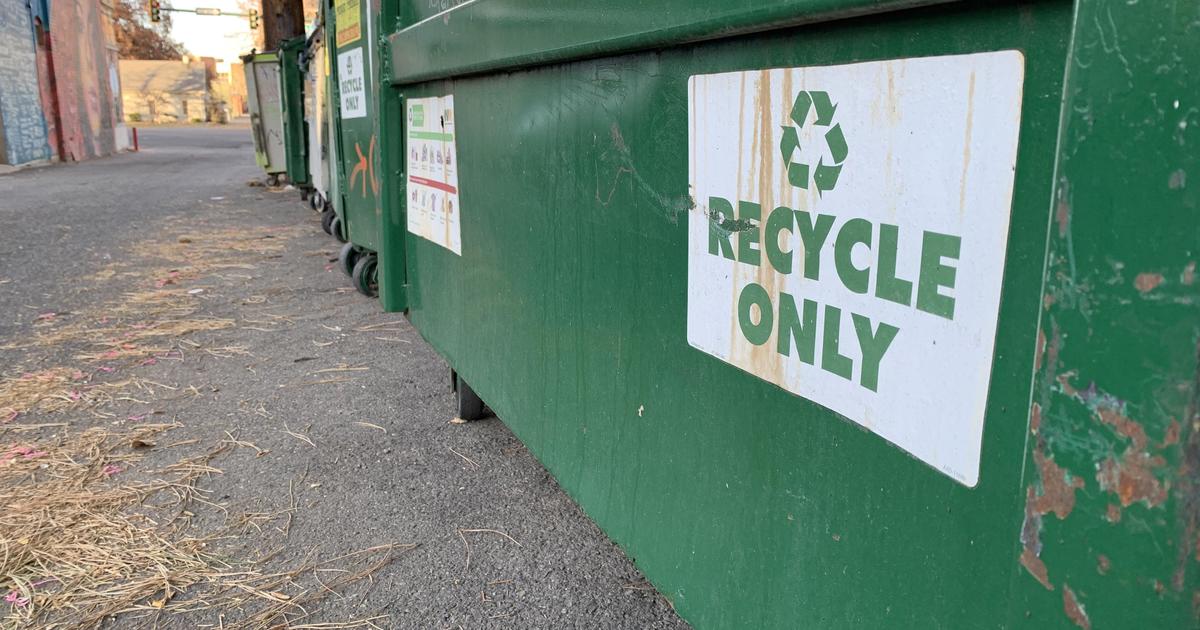EPA announces plans to regulate toxic PFAS "forever chemicals" for the first time, dozens of Colorado water systems affected
For the first time, the Environmental Protection Agency is proposing national legal limits on per- and polyflouroalkyl substances -- or PFAS -- in public water supplies. The proposed changes could affect dozens of public water utilities across the Centennial State.
Commonly referred to as "forever chemicals," because of their strong chemical makeup and difficulty breaking down in the environment, long-term exposure to PFAS is linked to health issues in humans, including birth defects and cancer.
"I think it's a very important first step," said Dr. Christopher Higgins, a civil and environmental engineering professor at the Colorado School of Mines who has been studying PFAS for years. "The reality is these compounds have been used in so many different products over so many years, they are in pretty much everything, but the question is, what is a meaningful exposure? By the EPA proposing a new standard, they've said, 'this is what we think is reasonable in terms of safety, and if people can have water below this, we think this will have minimal risk.'"
The EPA's proposal sets hazard standards for four PFAS compounds and would require levels of two other PFAS compounds - PFOA and PFOS - to be below 4 parts per trillion in public drinking water. It would also require water systems to regularly test and notify the public of any exceedances.
"We understand that these chemicals are present in all of us," Higgins said. "You can take a sample of anyone's blood and measure these chemicals in there, and there have been concerns about long-term effects. So, anything we can do to minimize people's exposure is a really important thing."
A CBS News Colorado analysis of state testing records shows in 2020, 40 public water utilities in Colorado had levels of both PFOS and PFOS at or above 4 parts per trillion.
These new levels proposed are higher than the health advisory guidelines announced last summer for PFOA and PFOS. When those levels were released, CBS News Colorado found more than 100 water systems that participated in the 2020 state testing discovered levels exceeding those guidelines. Read more about that here.
More water systems in Colorado could also have unsafe levels, but remain unaware, because testing has not previously been a requirement. The state-assisted testing in 2020 was only voluntary, and not every water system in Colorado participated. To see if your water system participated and what levels were found, click here and look for your water utility in the drop down menu.
The Colorado Department of Public Health and Environment's Drinking Water Program Manager, Ron Falco, says the department is currently working with drinking water systems to help them with testing efforts as part of the CDPHE's PFAS Grant Program.
"The Colorado Department of Public Health and Environment recognizes the Environmental Protection Agency's recent action as an important step to help reduce PFAS exposure from drinking water. This rule will strengthen the consistent and proactive actions Colorado has already taken to protect the public from these chemicals since 2016 when we first learned about PFAS contamination in Colorado," Falco said. "The EPA's draft regulatory limits for drinking water consider health effects, technical feasibility and a cost-benefit analysis. Because of these factors, the draft regulatory limits are higher than the health advisory. We are taking the time to complete a careful examination of this draft rule to guide our next steps."
While the proposed limits are not yet final and will be open to a public comment period before being approved and put into effect, Higgins says many water systems are already beginning to make plans on how they will mitigate higher PFAS levels from their water supplies.
He also says his research into how to destroy these chemicals may soon be put to good use by some water utilities looking for mitigation solutions.
"It's a big deal, because it's going to impact a lot of water systems, there's a lot of communities around the country that have levels of PFAS in their drinking water, it's not going to be every single water system in the country, but it's going to be a lot., and in talking with water systems, they've been thinking this would happen, but it's finally happened," Higgins said.
The city of Thornton, which found a PFOA level of 7.1 parts per trillion, and a PFOS level of 3.5 parts per trillion during voluntary testing last year at one of the city's two water treatment plants, says it is evaluating next steps in light of Tuesday's announcement.
"Thornton understands that our water customers, and those in many jurisdictions, are likely concerned about the safety of their water given the new EPA rules on these contaminants. But it is important for people to know that Thornton and its leaders are planning the long-term strategies to ensure our city continues to provide safe drinking water that meets all of these safety standards," says Thornton Communications Director, Todd Barnes.
Barnes added that Thornton staff are currently reviewing the draft rule to determine if current treatment strategies are sufficient to meet the requirements and, if not, what changes and associated funding would be required to meet the new requirements.
Meanwhile, Higgins says while you wait for your water system to evaluate its PFAS levels, if you're concerned about it, you can use carbon filters or a reverse osmosis system to filter your drinking water at home. If you go with a carbon filter, Higgins advises changing the filter frequently.
Higgins also says these proposed regulation changes will not affect private wells, and advises it's important if to get your water tested if your drinking water is supplied by a private well, especially if there have been fires in your community over the years where firefighting foam containing PFAS may have been used.
CDPHE also offered more information and resources about the state's efforts to address PFAS pollution for any water drinkers who may have further questions.
"Apart from this draft rule, the department continues to execute its PFAS action plan," Falco said. "This plan helps protect the public from PFAS exposure through sampling, a grant program, and offering technical assistance. Since we first learned of PFAS contamination in Colorado in 2016, we have:
• Provided monthly public water system PFAS status and coordination updates on CDPHE's PFAS website.
• Provided almost $2 million in funding to help communities address PFAS in their water.
• Worked with public water systems that had elevated levels of PFAS to develop next steps and assist in communication efforts to their customers.
• Required water dischargers to monitor for PFAS as a requirement in their discharge permit and have limited PFAS in discharges.
• Required any facility using or storing firefighting foam containing PFAS to register and provide the amount of firefighting foam.
• Required entities that test with firefighting foam containing PFAS to follow capture and disposal standards to prevent releases to the environment.
• Bought back almost 15,000 gallons of PFAS-containing firefighting foam from over 40 fire departments, preventing it from contaminating water supplies.
• Had oversight of PFAS cleanup actions at eight facilities across the state that address groundwater, soil, and surface water contamination.
• Added PFOA and PFOS as hazardous constituents to allow us to investigate, clean up, or otherwise remediate PFOA or PFOS releases at a facility under a hazardous waste permit.
• Provided regularly updated health information to empower Coloradans with actionable steps they can take to address PFAS in their families and communities."






